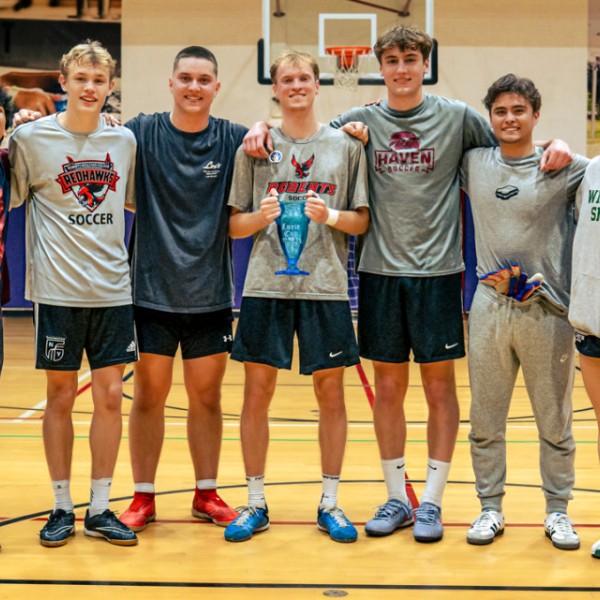In her time at Cornell, Maria DiGiovanni ’23 explored and confronted a multitude of challenges that impact our food system. From co-founding the Soil Factory to co-leading Cornell Hunger Relief, she’s put classroom lessons into practice. Her contributions have not gone unnoticed — Maria was named a Merrill Presidential Scholar (2023) and a Cargill Global Scholar (2021-23). In partnership with the Cornell Farmworker Program, her research with local farmworkers questioned how a national labor policy would impact the livelihoods of farmworkers and their families, and stressed the importance of including their voices in immigration reform. Recently selected as a Fulbright Scholar in Italy, Maria will explore how young Italians in Cosenza, Calabria maintain sustainable rural livelihoods.
What are the big challenges that you seek to confront in your work?
I am interested in exploring the future of food and work, which remains ambiguous amid contemporary challenges like climate change and automation. Given how much agriculture contributes to employment around the world, the intersection of these two challenges will become only more important to sustainable development in the coming decades. I want to investigate the historical and contemporary forces that shape agricultural systems, from local economic conditions to international trade policies, to determine how we can support more dignified work in rural spaces. Through research and advocacy, we must generate a paradigm shift in our perspectives of agricultural professions, recognizing the deserved magnitude of their economic and cultural value.
To me, food is about people. Creating a more just food system starts with respecting the people that uphold it.
Tell us about your work with the Cornell Farmworker Program.
After being interested in the Cornell Farmworker Program (CFP) for some time, I reached out to Mary Jo Dudley, the CFP Director, to supervise my senior honors thesis. The CFP had been keeping watch of the Farm Workforce Modernization Act (FWMA), a federal bill that proposed to provide a pathway to legal status for undocumented farmworkers but also presented many risks, such as the mandatory enforcement of E-Verify for all agricultural employers. When it passed the US House of Representatives in July 2021, the perspectives of undocumented farmworkers were largely unheard in mainstream news coverage, which otherwise celebrated the legislation as a promising compromise. Our research therefore sought to understand how the undocumented workforce in New York State viewed the legislation and anticipated it to affect them as a population. Through semi-structured interviews with farmworkers, service providers, and other stakeholders and news media analysis, we examined to what extent the FWMA would facilitate immigration reform that reflects the realities of the undocumented workforce and how other actors shaped the misleadingly favorable policy discourse. FWMA has not made further progress in the federal legislature since, but even this failed attempt at compromise indicates that we are far from creating just immigration reform for farmworkers.
Doing an honors thesis from start to finish taught me a lot about the challenges and opportunities within participatory research, especially regarding vulnerable populations. I could not have done it without the boundless support and expertise of Mary Jo Dudley, who is a trusted researcher and advocate in the NYS farmworker community.









